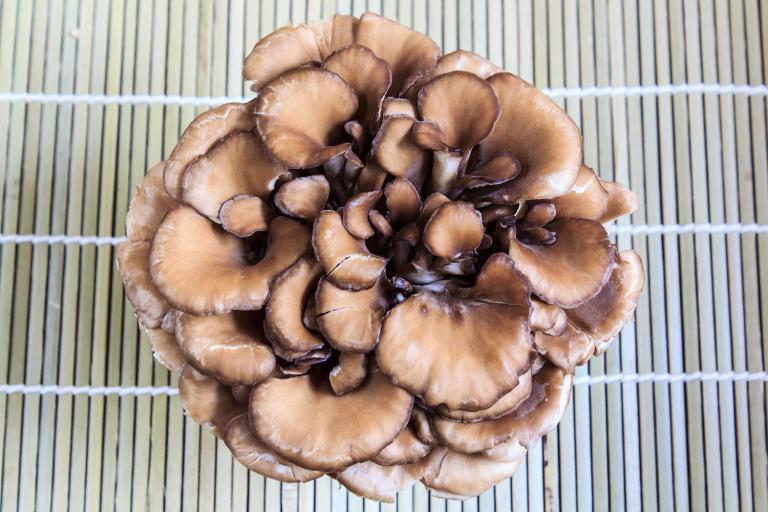Comprising about a quarter of the earth's biomass, fungi survives in hostile environments, where it encounters disease-causing pathogens much more frequently than plants.
“To survive, [mushrooms] must have proactive, healthy immune systems,” write Georges M. Halpern, MD, PhD, and Andrew H. Miller in Medicinal Mushrooms.
Not surprisingly, many experts believe fungi can also support the immune system in humans.
The Medicinal Mushrooms for Immunity
Research is beginning to explore various benefits from medicinal mushrooms, rich in healing polysaccharides. Here are some that are especially intriguing.
-
Cordyceps (C. sinensis)
Cordyceps helps fight aging. Combined with rigorous exercise and a heart-healthy diet, cordyceps can help lower LDL (lousy) cholesterol while boosting HDL (healthy) cholesterol.
This fungus also appears to lower blood sugar levels, making it useful in diabetes, a risk factor in cardiovascular disease.
Cordyceps also appears helpful for people with arrhythmia, hepatitis B, cirrhosis, and chronic fatigue.
Herbalist David Winston recommends this adaptogen herb to normalize immune function, improve lung function in chronic bronchitis, and as a kidney tonic in degenerative kidney disease.
You don’t need to be sick to use cordyceps, though: in 1993, Chinese athletes broke world records in swimming and track after taking this medicinal fungi.
-
Maitake (Grifola frondosa)
Maitake is a large edible mushroom also available in supplement form. Served as health food in China and Japan for centuries, maitake appears valuable in fighting cancer, diabetes, and heart disease.
In particular, maitake D-fraction has shown clinical benefits among people with brain, breast, liver, lung, pancreatic, and prostate cancers.
In addition to helping to shrink tumors, maitake D-fraction is complementary medicine, safe enough to use with chemotherapy, radiotherapy, and surgery.
Supplementing with maitake SX-fraction also improves glycemic control among people with Type 2 diabetes taking oral medications.
-
Reishi (Ganoderma lucidum)
Reishi is another adaptogen the Chinese call an herb for the immortals. Reishi’s effects are mild and cumulative, helping to relieve stress.
Extensive investigations find that reishi mushroom not only strengthens the immune system but also regulates excessive immune response, as in allergies and autoimmune diseases.
Reishi’s anti-inflammatory activity is beneficial in asthma, chronic obstructive pulmonary disorder, and hepatitis B and C; this mushroom helps protect the liver and fights viruses.
“Regular use lowers levels of LDL and VLDL cholesterol and triglycerides, inhibits platelet clumping, mildly lowers blood pressure, and in clinical studies, has been shown to reduce cardiac pain (angina) and arrhythmia, and to help prevent arteriosclerosis,” says Winston.
Recent studies suggest reishi may even help relieve urinary symptoms in older men and inhibit prostate cancer.
-
Agaricus (A. blazei)
Agaricus is another medicinal mushroom that’s proving effective in research. Experimental studies find its beta glucan (a polysaccharide) particularly potent, suggesting its usefulness in fighting cancer and infections.
-
Lion's mane, Hericium (H. erinaceum)
Hericium, also known as lion’s mane, possesses antimicrobial and cancer-fighting benefits, in addition to showing promise in fighting Alzheimer’s disease.
Mushroom Mycelium
Mycelium is the root system of the mushroom. It, too, can support the immune system.

